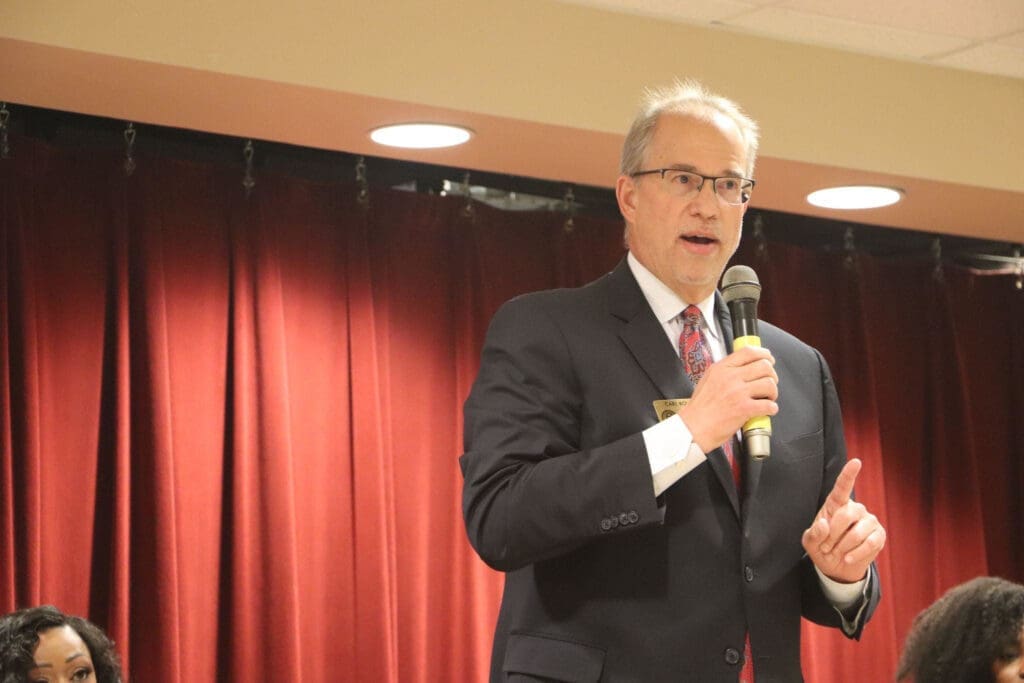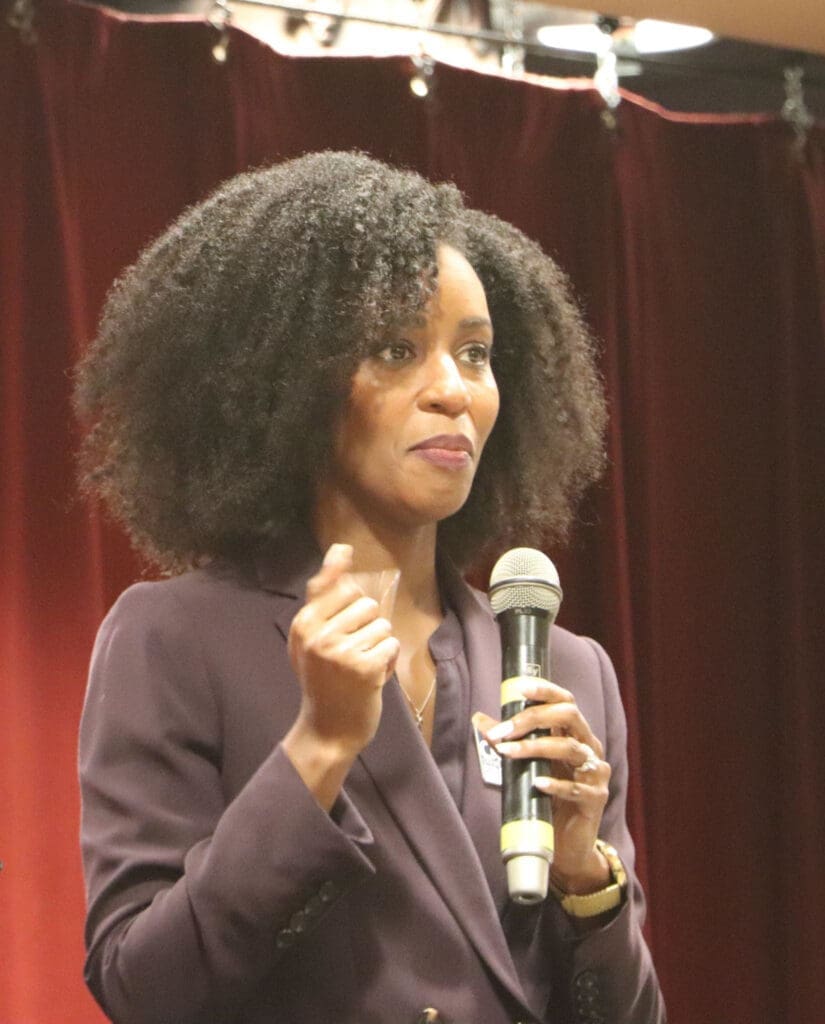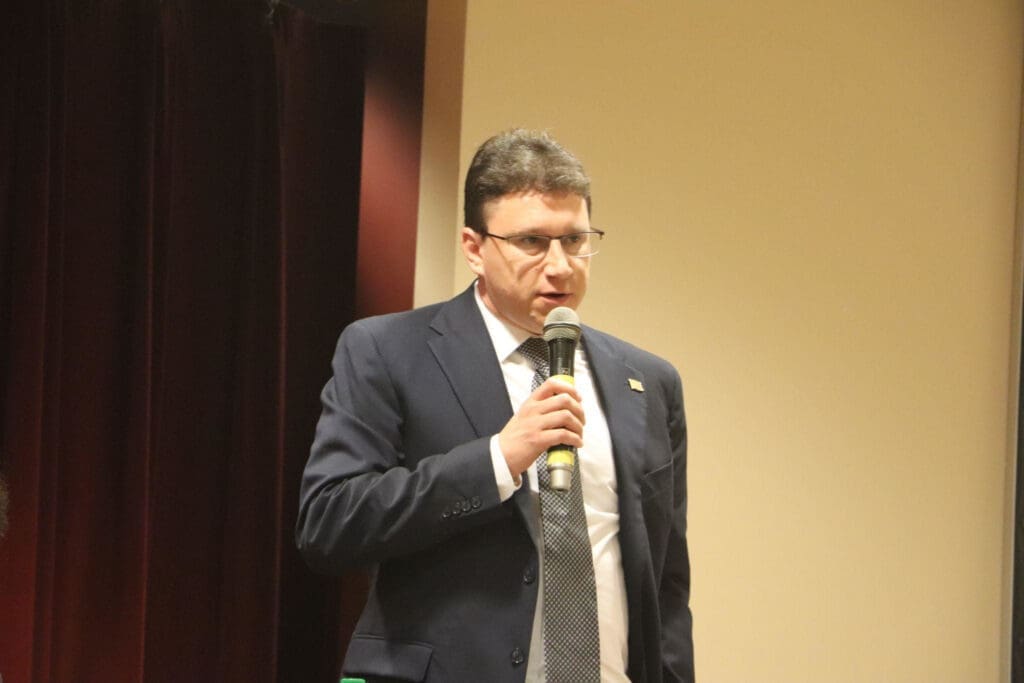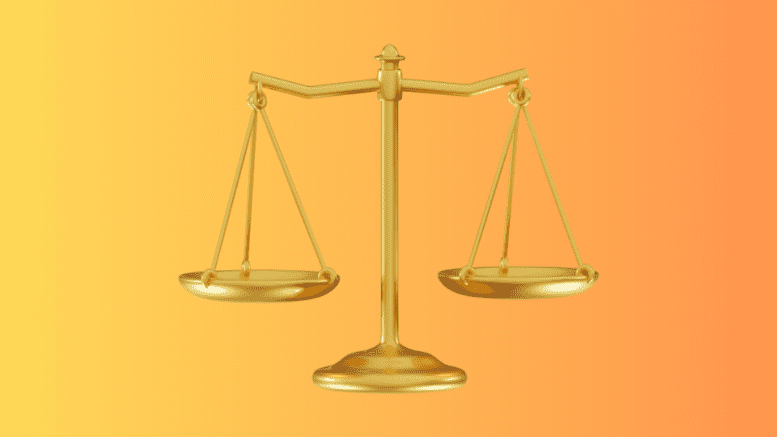By Caleb Groves
On Thursday, April 25, 2024, candidates showed what they brought to the table for the State Court Judge Post 7 position at Zion Baptist Church.

Incumbent Carl Bowers faced two challengers: Crystal McElrath, an attorney for the Southern Poverty Law Center, and Matt McMaster, a general practice lawyer. The candidates debated issues, often concurring with one another.
State Court judges rule on misdemeanor cases regarding traffic violations, arrest warrants and conduct preliminary hearings for criminal cases. Judges campaign and are voted into their positions through a non-partisan election process.
The Moderator, attorney Erica Wilson, posed questions to the candidates.
Bowers opened with his extensive background as a state court judge since 2005.
“You have elected me five previous times to serve in this community in that position,” he said. “And I hope that you’ll give me that honor once again.”

McElrath centered her opening about how her background informs her perspective today, respecting and treating people as equals and her willingness to put in the hard work required for the job.
She mentioned both of her grandfathers were steelmill workers, influencing how she thinks about the role of a judge, while in law school she worked two jobs to make ends meet, McElrath said.
“We are complicated,” she said. “There’s more to a person than ever meets the eye. And to be able to bring equity to a courtroom, you have to be able to see people where they are.”

McMaster said his motivation isn’t a desire to be a judge.
“I actually don’t want to be a judge, and that’s hard for people to understand… I’m running not because I believe I should be the guy at the road telling people what to do or because I want power, but because I want to be the judge that I wanted, that I want.”
He said that his self-awareness of where he stands in society and avoidance of being quick to judge would make him fit for the job.
Technology in the courts
Every candidate agreed about the necessity of staying up-to-date with technology, ensuring quality service in the courts.
McMaster said he’d use his background in IT to solve technology issues that may arise if elected.
“I think my IT background also would enable me to have ideas that other people, wouldn’t even cross their minds because I have such an in-depth knowledge of technology,” McMaster said. “But all it is, is a solution to a problem and I’ll keep finding problems. I’m good at that and I’ll keep finding solutions. I’m good at that too.”
McElrath and Bowers spoke about how video calls changed how courts operated during COVID-19 and continue to do so today. This shift in how courts worked created a new industry focused on improving court efficiency through technology, McElrath said.
“I think that’s important because access to justice, of course, is very much dependent upon people’s ability to engage from wherever they are, whether that be in between jobs at home without transportation to the courthouse,” she said.
The remedied State Court backlog
Although the Cobb Superior Court Clerk’s Office faces backlog challenges, Bowers said the State Court does not.
“Now, there were periods of time when we couldn’t do many, many things, to be sure, but the courthouse was never closed,” Bowers said. “Now, that cannot be said of other jurisdictions.”
The judge-law clerk relationship
All three candidates view the law clerk as integral to the state court judge.
McElrath said it’s an extension of the judge, providing the judge with additional research and an extra set of hands to free up time and make the judge look good.
Similarly, McMaster said he sees the law clerk as an extension of the judge’s brain.
Bowers, who refers to his law clerk as a staff attorney, said, “There are any number of ways in which the staff attorney can be invaluable in assisting the court and moving the court’s business and in pointing out legal issues, legal problems, perhaps even at times competing cases that the appellate courts have reached that make it a phony issue for a court to decide.”
The polls open for advance voting tomorrow, April 29, and the primary and nonpartisan election day is May 21.

